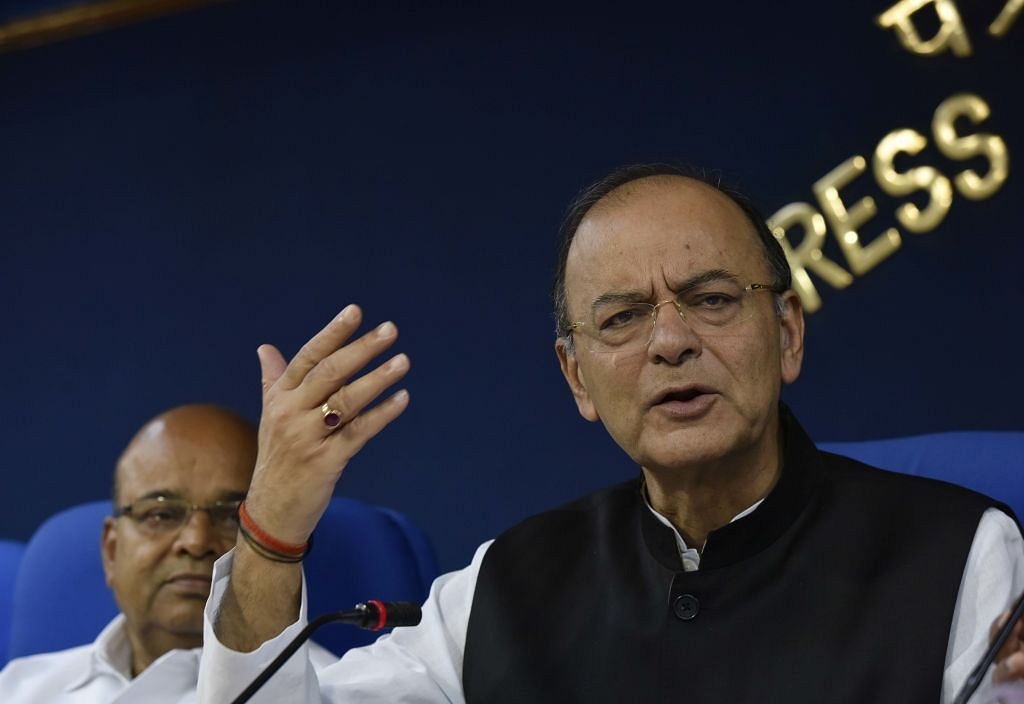Economy
Will Keep Exploring Blockchain, Says Finance Minister: Here’s One Way It Can Transform Governance
- Why bringing land records on blockchain is a transformative idea

Arun Jaitley (Vipin Kumar/Hindustan Times via Getty Images)
Finance Minister Arun Jaitley reiterated the Union Government’s stand against crypto currencies such as bitcoin in the 2018 Union Budget. However, regarding blockchain technology, he stated that it will be utilised by Government, as it allows the organisation of records without intermediaries.
What exactly is blockchain?
Blockchain is a growing list of records that are linked to each other. In other words, it is like a spreadsheet that has been duplicated across a network of computers, and the network is designed such that it regularly updates the spreadsheet. Blockchain stores blocks of information identically across its network. This means that it cannot be controlled by any single entity, and has no single point of failure. Blockchain can be utilised for various purposes by the government, for example, to implement a secure record-keeping system. This can especially helpful with respect to land registries.
Blockchain technology can be easily leveraged for this purpose. How? It allows to create permanent public “ledgers” of land data, which can then be viewed by all parties involved - banks, brokers, government and so on. This will result in faster land transactions, along with an assurance on transparency. The files or data cannot be manipulated across the board, since doing that will require overriding the entire work, and if the data is manipulated, then it can be easily traced since transaction data and timestamp are also encoded in a ‘block’. The introduction of a blockchain land registry could potentially secure land ownership. The current system of property transfer involves a great deal of delay and bureaucratic haggling. It involves physical ledgers that bureaucrats can easily manipulate. Somebody’s land can be usurped by a set of fake documents - the fact that right to property is not a constitutional right doesn’t help either.
However, land records are being made digital through Digital India Land Records Modernization Programme. But this system is not hack-free, it is still susceptible to subversion by bad actors. This is why blockchain can be transformative.
Andhra Pradesh has already initiated a pilot project on blockchain management for their land registry. Sweden is also testing blockchain technology for its land registry.
India could greatly benefit from utilising this technology to rectify its land governance woes. With a trustworthy and enforceable land ownership, the financial markets will benefit greatly, along with the citizenry.
The authors would like to thank Mandar Kagade for his inputs.
Support Swarajya's 50 Ground Reports Project & Sponsor A Story
Every general election Swarajya does a 50 ground reports project.
Aimed only at serious readers and those who appreciate the nuances of political undercurrents, the project provides a sense of India's electoral landscape. As you know, these reports are produced after considerable investment of travel, time and effort on the ground.
This time too we've kicked off the project in style and have covered over 30 constituencies already. If you're someone who appreciates such work and have enjoyed our coverage please consider sponsoring a ground report for just Rs 2999 to Rs 19,999 - it goes a long way in helping us produce more quality reportage.
You can also back this project by becoming a subscriber for as little as Rs 999 - so do click on this links and choose a plan that suits you and back us.
Click below to contribute.
Latest